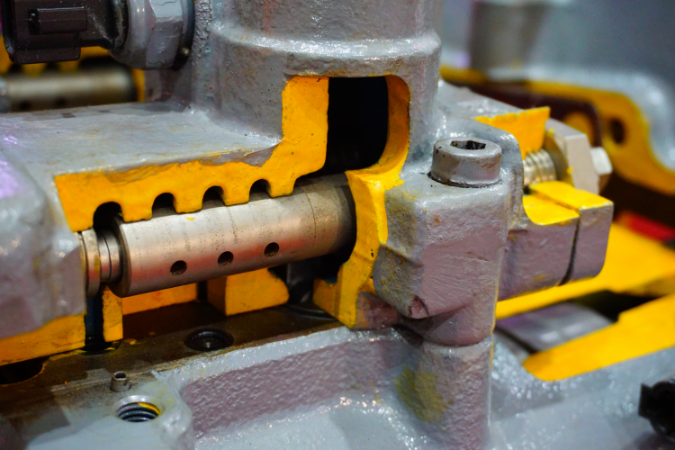Hydraulic pumps play a central role in a wide range of industrial applications, from construction plant to heavy machinery and production equipment, so it is essential to keep pumps in optimal condition in order to avoid unscheduled downtime. One of the best ways to avoid unnecessary performance issues is to specify high quality components in your hydraulic systems, but beyond this, the performance and longevity of hydraulic pumps largely depends on how well they are maintained. In this article, we’ll look at seven essential tips to help keep your hydraulic pumps in good working shape, ensuring optimal productivity.
2) Regularly inspect your hydraulic hoses and tubing: inspect your hoses and tubing on a regular basis for any signs of wear and tear, such as kinks, abrasions, and other visible damage. Even minor damage can significantly impact the efficiency of a hydraulic system, so swap out these components whenever necessary.
3) Check your breather filters and caps: breather filters and caps are crucial for maintaining the cleanliness of your hydraulic fluid and keeping it free from contaminants. Inspect these components regularly for any damage or holes to ensure that they are doing their job correctly.
4) Follow manufacturer specifications: different pumps have varying recommended maintenance requirements, so always have your system literature at your disposal and, where possible, follow the vendor specifications for maintenance measures. These can include specific guidelines for part replacement schedules, cleaning procedures, and more.
5) Sizing and selection of your pump: many maintenance issues occur due to the wrong pump being used in the application, so at the design stage it is good to doublecheck that your pump is properly sized and is right for your application. Over the lifetime of the pump, this can drastically reduce energy consumption and improve the overall efficiency of your hydraulic system.
6) Check your hydraulic fluid levels: regularly check the level and quality of your hydraulic fluid and top up when necessary. Always clean the fluid container lid/cap before adding hydraulic fluid to prevent the transfer of contaminants.
7) Preventative maintenance: prevention is undeniably better than cure when it comes to keeping your hydraulic system functioning effectively. A good proactive and preventative maintenance plan will reduce downtime and save money over the application’s life cycle, and should include regular servicing, changing the hydraulic filters, and obtaining hydraulic fluid samples for testing.
Next Steps
Implementing a few basic maintenance tips can significantly enhance the performance of a hydraulic pump and boost industrial productivity. For any questions about hydraulic system design, maintenance, or specifying the right parts for your application, please contact us today by clicking here.


